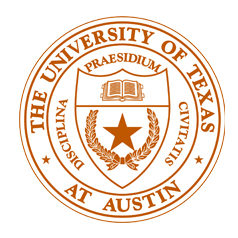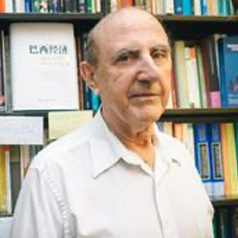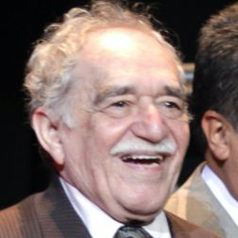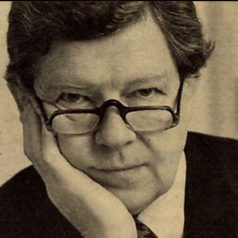BRASA’s Lifetime Contribution Award (LCA) recognizes a leader in the field of Brazilian studies with both a record of outstanding scholarly achievement and significant contributions to the promotion of Brazilian studies in the United States. It is awarded every two years, corresponding with the BRASA International Conference.
2024 BRASA Lifetime Contribution Awarded to

James N. Green

Committee:
Amy Chazkel (Chair)
Aldair Rodrigues
Rebecca Tarlau

We are excited to honor James N. Green, Carlos Manuel de Cespedes Professor of Modern Latin American History and Portuguese and Brazilian Studies at Brown University, with the Brazilian Studies Association Lifetime Contribution Award. The committee awarded this honor to Jim for three reasons: 1) his impactful scholarship in an understudied area of scholarship in Brazilian studies—LGBTQ history—and the impact of this scholarship beyond the academy. 2) His contributions to BRASA, transforming it from a small group of Brazilianists in conversation to a major academic society; 3) his advocacy and activism in defense of Brazilian democracy. The nominating letter and additional letters of support for this award speak to his powerful impact in these three areas. His work as a scholar, teacher and public intellectual is marked by his masterful knowledge of Brazilian culture, history and politics and his theoretical sophistication concerning gender, sexuality, and power.
After an early career as a dedicated activist working for social justice in Brazil and elsewhere in Latin America as well as in the United States, Jim embarked on what would be a spectacularly successful and impactful academic career, yet never leaving his commitment to justice behind. Beginning with his early scholarship in his doctoral research and first book, he began a line of inquiry into the history of the multiple and often contested uses of urban space in Brazil, pioneering what was not yet even called LGBTQ history. His first monograph Beyond Carnival: Male Homosexuality in Twentieth-Century Brazil investigated the complexities of gay public life in Brazil’s two largest cities, Rio de Janeiro and São Paulo, in the late nineteenth and twentieth centuries. This work became an instant classic, won numerous prizes, and had a deep impact on the study of urban culture, public life, and the cultural politics of difference both within and way beyond the field of gender and sexuality studies.
Green’s second monograph, We Cannot Remain Silent: Opposition to the Brazilian Military Dictatorship documents the history of the grassroots, decentralized campaigns to denounce human rights violations in Brazil in the 1970s and 80s. This bookinspired the publication in English of a memoir about the political activities of Marcos Arruda, an exiled former political prisoner and one of the leaders of the solidarity movement in the United States. In 2018, Green published Exile within Exiles: Herbert Daniel, Gay Brazilian Revolutionary, which was simultaneously released in Brazil. Stage director and playwright Zé Henrique de Paula’s musical, Codinome Daniel, based on the book,debuted in São Paulo in 2024 in São Paulo. Jim is a rare US-based Brazlianist scholar whose work has had as much of an impact in Brazil as it has in the US. All of his books and academic articles have been translated to Portuguese and published in Brazil.
Jim’s contributions to BRASA are unparalleled. Elected to the Executive Committee in 1998, he was subsequently elected to Vice President followed by a term as President between 2002-2004. During this time, he played a crucial role in the restructuring and professionalization of BRASA. In 2015, he assumed the position of Executive Director, overseeing BRASA during a period of expansion and heightened political engagement. In 2018, Jim co-founded with Gladys Michell-Walthour the US Network for Democracy in Brazil, which brought together both scholars and activists concerned with academic freedom and Brazil’s deteriorating democracy during the Bolsonaro presidency. More recently, he was a co-founder and is currently the President of the Board of Directors of the Washington Brazil Office, a non-partisan think-tank and advocacy organization that works with Brazilian social movements and NGOs to facilitate a progressive international agenda on Brazil. This Lifetime Achievement Award bestows a richly deserved honor upon a scholar, mentor and proponent of Brazilian Studies throughout the world who has contributed so much to our collective understanding of the several fields he has researched: human rights in Latin America and beyond; LGBTQ culture and movements; cultural and transnational approaches to the understanding authoritarian military rule in Latin America; the contested uses of urban space; and the study of Brazil in general.

The BRASA Executive Committee is delighted to present the 2022 Lifetime Contribution Award to Peggy Sharpe, Emeritus Professor of Spanish and Portuguese at Florida State University. BRASA honors Dr. Sharpe’s prodigious contributions to the promotion of Brazilian studies in the United State. Bestowing the Lifetime Contribution Award on Dr. Sharpe, BRASA seeks to acknowledge our debt to her for advancing the mission established by BRASA’s founders, Jon M. Tolman, Roberto Reis and Edward A. Riedinger.
Before serving as President of BRASA from 2008 to 2010, Peggy Sharpe contributed to the consolidation of BRASA in various capacities. Besides participating in the early development of BRASA (and other organizations, such as APSA), Sharpe has overseen the creation of programs and departments (at University of Illinois, University of Mississippi, the United Arab Emirates University, American University of Ras Al Khaimah, and Florida State University), and taught in Brazilian universities (Federal Universities of Maranhão, Pernambuco, and Minas Gerais).
As a member of BRASA since its beginnings, Peggy Sharpe has been part of a ground-breaking generation of women scholars studying and conceptualizing Brazilian feminism and establishing the bases for intersectional scholarship on Women’s Studies with a focus on the literature produced by women writers in Brazil. Sharpe is recognized internationally for her pioneering studies of 19th– and early 20th-century Brazilian women writers. As noted by one of her nominators, she is one of the most “vigorous contributors to the progressive reshaping of the Brazilian literary field, which aims at including the legacy of women’s significant production as formative of Brazilian culture.”
Sharpe’s first presentation at a BRASA Congress (1996 King’s College, Cambridge University) was on writers Júlia Lopes de Almeida (1862-1934) and Adalzira Bittencourt (1904-1976). During that same year, Sharpe organized the conference Resistance and Identity: Towards a Theory of the Practice of Brazilian Women Writers at the University of Illinois, Urbana-Champaign. The project brought together writers such as Helena Parente Cunha, Lya Luft, Marina Colasanti, and Nélida Piñon. Presentations and panels engaged conversations and exchanges between writers and scholars, facilitating new perspectives on feminism and shared understandings of its praxes. Among the scholars present were Cristina Ferreira-Pinto, Susan Quinlan, Maria José Somerlate Barbosa, and Naomi Hoki Moniz. Sharpe published the communications of this seminal encounter under the title Entre resistir e identificar-se: Para uma teoria da pratica da narrativa brasileira de autoria feminina (1997). Sharpe helped to organize two other memorable conferences: one in the memory of Nísia Floresta (1987, Rio Grande do Norte) and The First Congress of Brazilian Women Writers in New York (2009).
Sharpe—to quote one of her nominators— “contributed ground-breaking research in a field that was barely getting off the ground.” Like other literary feminist scholars of the 1980s and 1990s, Sharpe was one of the pioneers in reclaiming overlooked and misinterpreted works of women writers who had been erased from history and canon. She republished avant-garde works of Brazilian women writers such as Opúsculo humanitário by Nísia Floresta (1810-1885) –originally published in 1853–and A viúva Simões by Júlia Lopes de Almeida (1862-1934)–originally published in 1897. Sharpe was also the translator of Elogio da Diferença (1991), an essay by feminist Rosiska Darcy de Oliveira on female culture as a civilizing factor. Sharpe’s translation –In Praise of Difference: The Emergence of a Global Feminism (1998)–set in motion the circulation in the U.S. of the feminist vision proposed by Rosiska who, by 1995, had been appointed president of the National Council for the Rights of Women and made responsible for the implementation in Brazil of gender equality strategies.
With Susan Quinlan, Sharpe co-authored Visões do passado, previsões do futuro: Duas modernistas esquecidas (1996). In this joint publication, Sharpe and Quinlan retrieved from archives the writings of early paulista feminists Adalzira Bittencourt (1904-1976) and Ercília Nogueira Cobra (1891-?) bringing their writing back into circulation. Visões do passado, previsões do futuro includes Bittencourt’s novel Sua Excia: A Presidente da República no ano 2500 (1929), Cobra’s novella Virgindade inútil, novela de uma revoltada (1924), as well as Cobra’s essay Virgindade anti-higiénica: preconceitos e convenções hipócritas (1927).Sharpe has been a reference, role model, and mentor for a whole generation of Brazilianist literary feminist scholars. As a nominator aptly put it, “a wise and earnest educator, Professor Sharpe was the mentor whose life and academic teachings were decisive in my and others’ professional pursuits.” Nominators describe the impact Sharpe had in their careers and celebrate the opportunity of honoring a remarkable woman, scholar, and mentor for “providing invaluable guidance when very little guidance was available, especially regarding the field of Afro-Brazilian literature and the scholarship of aspiring young academic women in the U.S.”

The BRASA Executive Committee is delighted to present the 2020 Lifetime Contribution Award to Anani Dzidzienyo, Associate Professor of Africana Studies and Portuguese and Brazilian Studies, at Brown University. Professor Dzidzienyo’s work exemplifies the true meaning of this award, which honors someone with outstanding scholarly achievement and significant contributions to the promotion of Brazilian studies in the United States. His research, teaching and mentorship were instrumental to bringing the study of race to the center of Brazilian Studies, and his labors central to the founding of the field of Afro-Latin American Studies.
Professor Dzidzienyo received his B.A. in Political Science from Williams College and completed his graduate studies at the University of Essex in Latin American Politics and Government. He then spent three years as a research fellow at the International Race Studies Program at the Institute of Race Relations in London, during which time he also began teaching at Brown University, where he has served as a professor for over four decades. Dzidzienyo’s pathbreaking scholarship provoked Brazilian Studies to put Afro-descendants, and the afterlives of slavery, at the center of the field. At the same time, his approach also pushed the field to embed the study of Brazil in the study of the world, on both sides of the Atlantic. Both of these critical contributions can be found throughout his interdisciplinary, multilingual and transnational body of work. His brilliant and pioneering research is only matched by the monumental impact he has had on the field through his direct and indirect mentorship of generations of Brazilianists in the United States, and Brazilians. As his nominators noted “it would take at least two hands to count the books published by those he has taught”. Indeed, in the acknowledgements of these works, one easily finds Anani Dzidzienyo, the generous mentor and thoughtful interlocutor. The committee felt that Dzidzienyo’s nomination could not have come at a better time. His service, teaching, and research has always been informed by his deep commitment as a public intellectual. When he first began writing about race in Brazil in the 1970s – he was surveilled by the Military Dictatorship. He also lent his sharp analysis and critical eye to the policy arena, writing reports for human rights organizations and foundations. As his nominators noted, his first publication was the 1971 report “The Positions of Blacks in Brazilian Society”, written for the Minority Rights Group, and remains widely influential some 50 years later. Professor Dzidzienyo’s work reminds us to ask urgent and timely questions, to write and teach topics that may be unpopular, and to ultimately have a politics.

The BRASA Executive Committee is delighted to present the 2018 Lifetime Contribution Award to Anthony Seeger, Distinguished Professor Emeritus of Ethnomusicology at UCLA and Director Emeritus, Smithsonian Folkways Recordings. First nominated in 2015, during the last nomination cycle, we believe that it is now time to recognize Professor Seegers’s extraordinary contributions as a professor, archivist, record producer, administrator, and activist to Brazilian Studies. He is best known for his ethnographic and musicological research with the Kĩsêdjê (formerly known as Suyá) people of northern Mato Grosso, which yielded dozens of articles and book chapters, several recordings, a DVD, and several books, including the award-winning Why the Suyá Sing: A Musical Anthropology of an Amazonian People (Cambrige UP, 1987). During his early teaching career at the National Museum in Rio de Janeiro (1975-82), he played a leading role in the development of ethnomusicology in Brazil, while also advocating for indigenous rights during the period of abertura. Since 1982, his institutional career has been based in the United States, first as a faculty member in the Department of Anthropology and Director of the Archives of Traditional Music at Indiana University, then as Curator of the Folkways Collection & Director of Smithsonian Folkways Recordings starting in 1988, and finally as Professor of Ethnomusicology at UCLA from 2000-2012. The four letters of support received attest to his deep impact and lasting legacy as a teacher and mentor to graduate students trained in Brazil and the US. In addition to his outstanding accomplishments as a scholar, teacher, and administrator, the committee found his nomination compelling for additional considerations pertaining to discipline, area specialization, and professional trajectory. Professor Seeger is the first ethnomusicologist and the first scholar of Amazonian/Indigenous Brazil to receive this distinction from BRASA.

The Brazilian Studies Association is delighted to honor Jon M. Tolman with the BRASA Lifetime Contribution Award. At BRASA’s first international congress in Atlanta in March 1994, Jon was elected the first president of the organization. Jon did incredible work between 1992 and 2004 when he retired as Executive Director of BRASA. During those years Jon personally organized and ran the first seven BRASA congresses. BRASA could easily have failed during the 1990s. The resources for the organization were scarce. In addition to all this administrative and organizational work, he lobbied the Brazilian government and a steady stream of Brazilian ambassadors to Washington. He was a one-man machine successfully promoting Brazilian studies in the United States. We all owe him an enormous debt, one that we can never fully repay. For eleven years, Jon invested a good deal of his professional and personal life in giving life to BRASA. Bestowing Jon M. Tolman with BRASA’s Lifetime Contribution Award is one way for us to acknowledge our debt to him and to honor his formidable work toward the promotion of Brazilian studies in the United States.

Professor Maxine Margolis, Professor Emerita of Anthropology at the University of Florida and member of the American Academy of Arts and Sciences. Dr. Margolis stands out for her more than forty years of extraordinary and unflagging commitment to the mission of our organization: the promotion of Brazilian Studies in the United States. She is the author of many books, including Goodbye Brazil: Émigrés from the Land of Soccer and Samba (University of Wisconsin Press 2013), An Invisible Minority: Brazilian Immigrants in New York City (University Press of Florida, 2009), and Little Brazil: An Ethnography of Brazilian Immigrants in New York City (Princeton UP 1994). As her numerous books, articles, and media appearances attest, she pioneered research on Brazilian immigration in this country, raising the profile of Brazil-US relations in the process. Virtually single-handedly, Professor Margolis invented the study of the Brazilian Diaspora, and she began research on this topic a full decade before others had even identified the relevant trends. Dr. Margolis served BRASA in a number of capacities over the years, including taking on leadership roles on various committees. Beyond that, she has mentored several generations of students at the University of Florida and provided support to many emerging colleagues in Brazil over the years. She served as an active networker and an outstanding contributor to the consolidation of BRASA as an internationally recognized professional organization.

BRASA’s Lifetime Achievement Award (LCA) recognizes Professor Graham as a leader in the field of Brazilian studies with both a record of outstanding scholarly achievement and significant contributions to the promotion of Brazilian studies in the United States. Professor Graham’s stellar career merits such an honor for his scholarship, teaching, publishing, mentoring, and institutional development. Professor Graham is recognized internationally for his contributions to deepening our understanding of Brazilian history. Professor Graham’s first book, Britain and the Onset of Modernization in Brazil, 1850-1914 (1968), is a landmark study of British influence in Brazil. It won the prestigious Bolton Prize from the Conference on Latin American History in 1969. In 1978, he published The Jesuit Antonio Vieira and his Plans for the Economic Rehabilitation of Seventeenth-Century Portugal, an important contribution to colonial Brazilian and Portuguese imperial history. The following year, Escravidão, reforma e imperialismo (1979) brought together some of his article-length work on Brazilian slavery and profoundly shaped the emerging Brazilian scholarship on the country’s slave society. His pioneering work on slave families appeared in Portuguese in this volume, and laid out an agenda for future research on slave families in Brazil. Professor Graham’s 1990 Patronage and Politics in Nineteenth- Century Brazil quickly became a canonical work on Brazilian state formation in the nineteenth century. Perhaps his greatest contribution to Latin American history more broadly is the invaluable, The Idea of Race in Latin America, 1870-1940 (1990); it remains in wide use as an introduction to the field. In his retirement, Professor continues to research and write major contributions to Brazilian history. Feeding the City: From Street Market to Liberal Reform in Salvador, Brazil, 1780-1860, a study of the production and marketing of food in Salvador, Bahia, from the end of the eighteenth century through independence and the time of liberal reforms to the mid- nineteenth century was published in 2010. This book won the Bolton-Johnson Prize awarded by the Council on Latin American History in early 2011. Born in 1934 in the interior of Brazil to an American Presbyterian missionary father and a Brazilian mother, Richard Graham studied with Lewis Hanke at the University of Texas at Austin in the 1950s, receiving his doctorate in 1961, upon which he began his long and distinguished teaching career at Cornell University. In 1970, Professor Graham moved to the University of Texas and taught both undergraduates and graduate students there until his retirement in 1999.

Professor Baer’s research and writing focus primarily on the areas of industrialization, growth and economic development, public policy, inflation, and income distribution and equity. He has a distinguished record of scholarly achievement, including such books as Industrialization and Economic Development in Brazil(1965),The Development of the Brazilian Steel Industry (1970), and The Brazilian Economy: Its Growth and Development (1979), now in its sixth edition, as well as a lengthy stream of articles on a diverse range of economic and policy issues. One of the unique aspects of Baer’s work is the link he makes between historical, social, and institutional legacies of the Brazilian past and his direct and ongoing engagement with the most current issues of economic and public policy. He has taught at Yale (1961-65), Vanderbilt (1965-74), and the University of Illinois (1974-present), and he served as a program advisor for the Ford Foundation in Rio de Janeiro from 1967 to 1976. He has encouraged large numbers of young people to enter Brazilian studies and has recruited many, from both the United States and Brazil, to undertake doctoral studies in economics under his direction. Professor Baer’s multiple contributions have been widely recognized in Brazil. He has received the prestigious Rio Branco Medal from the Brazilian Ministry of Foreign Affairs (December 2000), the Medalha de Honra da Inconfidência from the state of Minas Gerais (1995), and the National Order of the Southern Cross from the government of Brazil (1982).

Gregory Rabassa, Emeritus Professor of of Spanish and Portuguese, City University of New York, has been named the 2008 recipient of the Brazilian Studies Association’s Lifetime Contribution Award. BRASA especially wishes to emphasize Dr. Rabassa’s lifetime contributions to the promotion of Brazilian culture and literature internationally, considering that his numerous translations of Brazilian writers have made Brazil’s literature more readily available to English-language readers. Professor Rabassa’s prominent career in Brazilian literature began as an undergraduate student at Dartmouth College, where he studied Portuguese, among other languages. After serving in Europe as a US Army language specialist during World War Two, he pursued his PhD at Columbia University, graduating in 1954 with a dissertation on Blacks in Brazilian literature after 1888. It was later published by Tempo Brasileiro Press as O negro na ficção brasileira (1965). Professor Rabassa’s greatest impact in the field of Brazilian Studies in the US has been as a translator. Rabassa has been called one of the greatest practitioners of the translation craft and has been the recipient of some of the most prestigious translation awards in the US, such as the National Medal of the Arts, which he received from President George W. Bush in 2006, and the PEN/Martha Albrand Award for the Art, for his 2005 memoirs If This Be Treason: Translation and its Dyscontents. He has published over forty translations of Latin American literature, among them some of the most important twentieth-century Brazilian authors, such as Jorge Amado, Machado de Assis, and Clarice Lispector. As a translator, scholar, and university professor, he has had a significant impact in the field of Brazilian Studies.

Dr. Skidmore’s stellar career merits such an honor for his scholarship, teaching, publishing, mentoring, and institutional development, among other contributions to the profession. He played a very significant role in advancing the study of Brazil in the United States throughout his forty-year career as a professor of Brazilian and Latin American history. Dr. Skidmore graduated from Denison University in 1954, received a masters’ degree from the University of Oxford, and completed his doctorate in history at Harvard University in 1961. He taught as an instructor and then as assistant professor at Harvard from 1960 to 1966. In 1967 he moved to the University of Wisconsin, Madison, becoming a full professor the subsequent year. Dr. Skidmore moved to Brown University in 1988 where he taught in the History Department (where he was Carlos Manuel de Céspedes Professor of Modern Latin American History) and was the Director of the Center for Latin American Studies until his retirement in 2000. He has served as President of the Latin American Studies Association and of the New England Council of Latin American Studies.Dr. Skidmore’s first monograph, Politics in Brazil, 1930-1964: An Experiment in Democracy(Oxford University Press, 1967), based on post-doctoral research at Harvard University, immediately became the definitive political history in English of those turbulent times. He followed up that volume with a political history of the military regime, The Politics of Military Rule in Brazil, 1964-85 (Oxford University Press, 1988) that documented the political system under the dictatorship and the gradual return to democratic rule in the early 1980s. He has also produced an important textbook history, Brazil: Five Centuries of Change (Oxford University Press, 1999). Another significant contribution of Dr. Skidmore to Brazilian studies has been the intellectual history, Black into White: Race and Nationality in Brazilian Thought (Oxford University Press, 1974), which traces the changes in notions of race in Brazil from debates during slavery to the eugenic and nationalist movements of the twentieth century. Like his two works on the political history of twentieth-century Brazil, this volume has become a reference point for all subsequent treatments of the subject. Dr. Skidmore continued publishing on this topic with an edited volume, The Idea of Race in Latin America, 1870-1940 (University of Texas Press, 1990). In Brazil, Thomas E. Skidmore came to personify the “Brazilianist,” as is reflected in the Portuguese publication of a collection of his essays, O Brasil visto de fora (Paz e Terra, 1994) and in the numerous printings of his translated works.
The Brazilian Studies Association (BRASA) is pleased to announce the call for nominations for the BRASA Lifetime Contribution Award. We invite members of the Brazilian studies community to submit their nominations for the recipient of this prestigious award, which will be presented at the BRASA XV International Conference, to be held at San Diego State University, April 2024.
Reflecting the primary mission of BRASA, the goal of this award is to recognize an individual with both a record of outstanding scholarly achievement and significant contributions to the promotion of Brazilian studies in the United States. The BRASA Executive Committee especially wishes to emphasize the criterion of lifetime contributions.
Nominees can be from any discipline or nationality but must have spent the greater part of their career involved in U.S.-based Brazilian studies activities. Nominees need not be members of BRASA.
Nominations will be reviewed by a BRASA award committee and voted on by the BRASA Executive Committee. The recipient will be announced before BRASA XVII in 2024. The recipient will also be invited to address the Congress. The BRASA vice president will present the recipient with a plaque of appreciation.
Nominations should consist of one substantial letter of recommendation outlining the accomplishments and contributions of the individual; a CV; and a list of five references prepared to provide additional letters, if necessary. Materials can be either in English or Portuguese. One nomination per individual is sufficient. No self-nominations or posthumous nominees will be accepted.